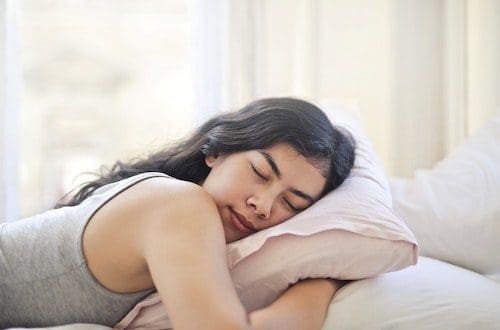
The Importance of Sleep in Recovery
Sleeping gives the body a chance to heal and reset from the day. For an adult in recovery, seven to eight hours of sleep per night is recommended.
Those in recovery often experience difficulties in sleep, including the following:
- Difficulty falling asleep and staying asleep
- Feeling tired throughout the day
- Nightmares or disturbing dreams
Not only does a lack of sleep have a negative effect on your quality of life, but it can put you at risk for relapse. Those who suffer from a lack of sleep may be unable to control their moods and are more likely to engage in risky behavior that can lead to relapse. Not sleeping enough can also cause the following symptoms:
- Anxiety
- Depression
- Obesity
- Suicidal thoughts
- Irritability
- Poor concentration
- Trouble making decisions or problem-solving
Tips for Getting a Restful Night of Sleep in Recovery
If you’re having trouble sleeping, consider these ways to promote better quality sleep:
- Stick to a sleep routine. Try to go to sleep and wake up at the same time each day.
- Limit naps. Try not to nap after 5 p.m. If you need a nap, keep it short (20 minutes or so) so you can still sleep at night.
- Don’t eat too much close to bedtime. Eating a large meal before going to bed can disrupt your sleep and lead to problems such as heartburn. If you are hungry before going to bed, opt for a small snack over a large meal.
- Exercise regularly. Regular exercise can help promote better sleep since it can help keep your body in balance. Avoid vigorous exercise before bedtime, though; if you must exercise at night, give yourself at least an hour to rest before bedtime.
- Cut back on caffeine and nicotine. Caffeine and nicotine are both stimulants that can affect your mood and, when used regularly, can increase your chances of relapse. If you need a cup of coffee to start your day, drink it as early as possible and avoid drinking caffeine or nicotine at night since it will make it more difficult for you to fall asleep.
- Turn off the electronics. While looking at your smartphone or laptop is a great way to pass the time at night, it can cause trouble with sleeping. According to the National Sleep Foundation, the blue light emitted from electronics can reduce the body’s natural production of melatonin, interrupting your sleep cycle and causing you to feel less sleepy.
- Create a comfortable environment. Make your bedroom as relaxing and comfortable as possible. Purchase new pillows or bedding and try to eliminate excess light or noise. You may want to consider unwinding by reading, meditating, or listening to relaxing music.
- Develop a nightly routine. Create a nightly bedtime routine to help your body understand it is time to relax. Taking a warm bath, stretching, or writing your thoughts in a journal can all help you destress and get ready for a restful night of sleep.
- Don’t lie awake. If you cannot fall asleep, lying in bed wide awake worrying about falling asleep can make it worse. Get up for a little while, then try again.
- Don’t rely on sleeping pills. Sleep medication can often be addicting and can have harmful side effects. Before taking any medication for sleep, consult with your healthcare provider. You do not want to become addicted to sleep medication, which can jeopardize your sobriety.
Twin Lakes Recovery Center Is Here to Help
If you or a loved one is struggling with a substance use disorder, Twin Lakes Recovery Center, near Atlanta, GA, is here to help. We offer treatment for substance abuse, alcohol abuse, and co-occurring disorders. Our continuum of care includes a variety of programs to meet your specific needs, including detox, inpatient residential treatments, intensive outpatient programs, relapse prevention programs, certified therapists, and a variety of wellness activities. Contact us today to find out more about what programs Twin Lakes Recovery Center has to offer.



